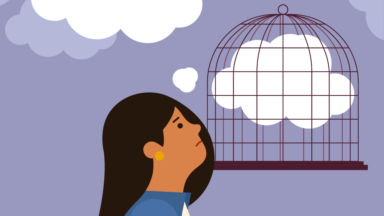
We’ve all had nights when sleep seems elusive, but for some, insomnia is a nightly companion. So, what does insomnia mean? In this blog post, we’ll delve into the science behind insomnia, exploring what it means, its different types, and why it’s more than just a few sleepless nights. Understanding insomnia from a scientific perspective can shed light on this common sleep disorder and how it affects your health.
Defining Insomnia
Insomnia is not merely the occasional difficulty falling asleep; it’s a persistent and chronic sleep disorder characterised by:
Difficulty Falling Asleep: People with insomnia may struggle to fall asleep, lying awake for extended periods before finally drifting off.
Difficulty Staying Asleep: Insomnia often involves frequent awakenings during the night, leading to fragmented sleep.
Early Morning Awakening: Some individuals with insomnia wake up much earlier than desired and find it challenging to return to sleep.
Non-Restorative Sleep: Even when they do sleep, those with insomnia often wake up feeling unrefreshed, as if they haven’t slept at all.
Daytime Impairment: Insomnia can lead to daytime symptoms such as fatigue, irritability, difficulty concentrating, and mood disturbances.
Types of Insomnia
Insomnia can be classified into two main types:
Acute Insomnia: This type of insomnia is often short-term and is usually triggered by a specific event or stressor. It can last for a few nights to a few weeks but typically resolves on its own when the underlying cause is addressed.
Chronic Insomnia: Chronic insomnia is persistent and lasts for at least three nights a week for three months or longer. It can be caused by various factors, including medical conditions, psychiatric disorders, or behavioural patterns.
The Science of Insomnia
Now, let’s explore the science behind insomnia:
Brain Activity: Insomnia is associated with heightened brain activity, particularly in areas responsible for alertness and stress response. This increased brain activity can make it challenging to relax and fall asleep.
Neurotransmitters: Imbalances in neurotransmitters, such as serotonin and dopamine, can contribute to insomnia. These chemicals play a role in regulating mood, sleep, and wakefulness.
Circadian Rhythm: Disruptions in the body’s internal clock, known as the circadian rhythm, can lead to insomnia. Shift work, jet lag, and irregular sleep schedules can all impact this natural sleep-wake cycle.
Medical Conditions: Underlying medical conditions, such as chronic pain, asthma, or gastrointestinal issues, can trigger or exacerbate insomnia.
Psychological Factors: Stress, anxiety, and depression are common psychological factors linked to insomnia. These conditions can create a cycle of sleeplessness, as insomnia, in turn, can worsen these mental health issues.
In summary, insomnia is not merely a sleepless night; it’s a chronic sleep disorder characterised by persistent difficulty falling asleep, staying asleep, or achieving restorative sleep. It can have significant physical and mental health implications, affecting mood, cognitive function, and overall well-being.
Understanding the science behind insomnia helps us recognise that it’s more than just a temporary inconvenience; it’s a complex condition with various underlying causes. If you’re struggling with chronic insomnia, you may benefit from a Cognitive Behavioural Therapy treatment like Sleepio. Cognitive Behavioural Therapy for Insomnia (CBT-I) is a highly effective and non-drug treatment option that addresses the root causes of insomnia and helps you regain control of your sleep.
Sleepio works with you to develop a personalised insomnia treatment plan, empowering you to challenge negative thought patterns, establish healthy sleep habits, and enjoy restful nights of sleep.

Here’s our latest

Why Am I Tired All The Time?
Feeling tired is something we all experience from time to time, but what happens when it becomes a constant companion?…

Is It Dangerous To Take Sleeping Tablets Every Night?
In our fast-paced lives, getting a good night’s sleep can be a challenge. Many people turn to sleeping tablets to…

Sleep After a Stroke: Stroke-Induced Sleep Disorders
Recovering from a stroke is a journey that comes with various challenges, and one of the often overlooked issues is…

